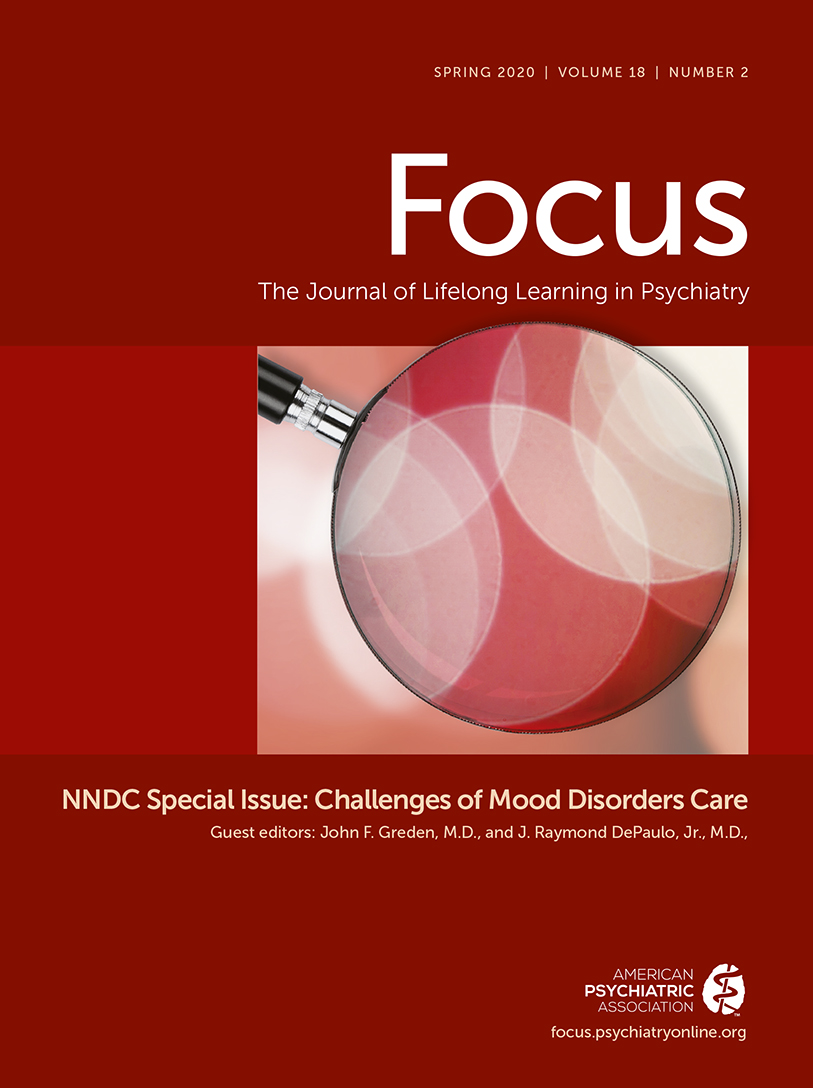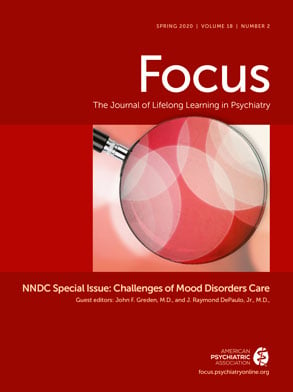Mobile applications, hereafter referred to as apps, are software programs that are either preinstalled or downloaded—most commonly to a mobile device for a specific purpose. Smartphones may be defined as devices that incorporate a mobile phone, camera, and audio with computerized capabilities. Tablets are larger devices that operate in similar ways but may be too large to function as a traditional phone. Although smartphones and tablets are both included in the broader terminology of “mobile devices” and can be used similarly, tablets, because of their size, are often more suitable to use for video-chat telehealth capabilities (i.e., two-way synchronous audio and visual connections) and CCBT.
The use of mobile apps in daily life continues to increase, and there has been a proliferation of apps designed for health care, including those for depression. Recent reports suggest that almost 200 billion app downloads are made globally each year, with a total annual revenue of over US $100 billion for apps stores and developers (
36). Health apps are one of the fastest growing categories of apps. Up to 325,000 health and wellness apps are commercially available to patients, with more than 10,000 designed for mental health (
37,
38). Surveys show that many patients would like to have mobile apps to help manage their symptoms and access clinical support (
39,
40). Although a recent review found that studies of depression and anxiety constitute 13% of the literature on mobile apps in health care (
41), concerns remain about the quality, security, and efficacy of mobile apps for depression.
In an analysis of 117 commercially available apps purportedly using CBT methods for depression, just 10% had content consistent with CBT methods (
42). Also, the usability of many apps for depression was questioned, and privacy and safety policies were rarely specified (
42). A review of apps for suicide risk found that only 25% provided a discussion of crisis support services (
43). Unwanted surveillance also can occur with mobile apps. Commercial companies that distribute apps may hold and transmit data through many hands and service providers, with limited or no attention to protecting the privacy of users (
44).
Efficacy of Mobile Apps for Depression
Few apps have been studied in rigorous, randomized controlled trials (
1,
2,
42). Therefore, compared with CCBT, much less is known about their effectiveness for specific psychiatric disorders. When apps for depression have been evaluated in research studies, they have generally been found to be helpful (
45). However, many investigations were not conducted using carefully diagnosed samples of persons with major depressive disorder, lacked appropriate control groups (
42), or were conducted by developers of the apps (
2,
36).
A meta-analysis of 18 studies in which a depression outcome measure was used with a variety of participants found an overall moderate effect size (Hedges’ g=0.38) for the mobile apps, compared with control conditions (
45). IntelliCare, a suite of apps, with some utilizing CBT principles, has shown significant reductions in depression measures when 8 weeks of coaching was provided (
46). Virtual Hope Box is not a depression-specific app, but it does include functions, such as breathing exercises, diversions, and relaxation training, that may help alleviate symptoms of depression and inspire hope (
2,
47). Developed by the Department of Defense, the Virtual Hope Box app has been shown to be significantly better than a control condition for increasing coping skills for unpleasant emotions and thoughts (
47).
Issues With Engagement
Despite some promising trends in findings supporting efficacy and reports of patients desire to use apps for their care, user engagement has remained relatively low (
36,
48). Overall, about three-quarters of users stop engaging with a health app after 10 uses (
49), and one study reported that 60% of patients in a study of apps for depression never downloaded the app (
50). PTSD Coach, one of the few apps to report usage data, has reportedly been downloaded over 150,000 times; however, a study of its impact showed that only 14% of people had used the app the day after downloading it (
51). Torous and colleagues (
49) conducted a narrative review of the literature and categorized five themes for low engagement: poor usability, lack of user-centric design, concerns about privacy, lack of trust, and not being of help in emergencies. Another review of 40 studies with “user engagement indicators” for mental health apps found that 36 studies reported some form of subjective engagement criteria and that 25 studies used objective measures of engagement. Although all reported positive engagement, no studies used the same criteria to evaluate the app (
52).
Using Mobile Apps in Clinical Practice
As with CCBT, it is important to evaluate the quality and efficacy of an app, including its ability to meet the stated purpose, prior to recommending it to patients or other providers. Yet the process of evaluating an app can be challenging. There has been a lack of consensus about what constitutes mobile app usability, feasibility, satisfaction, and acceptability (
52). The Mobile Application Rating Scale evaluates user engagement, function, aesthetics, and information quality and has shown some success in identifying shortcomings in medical mobile apps (
53). The American Psychiatric Association (APA) has developed an evaluation framework available online for clinicians to use prior to prescribing an app to a patient (
54). The APA framework recommends first gathering background information on the app developer and reasons for app development before evaluating the app’s privacy and security, effectiveness, ease of use, and operability.
We recommend consideration of the following features when evaluating an app for clinical use: the app developer, motivation for app development, and cost; use of user-centered design methods; data safety and privacy practices for how data are stored, used, and shared, including partner sharing agreements; whether the app works and addresses clinical concerns as intended, has undergone rigorous review, and is regularly updated; and user adherence data.
Few practical guidelines exist to assist clinicians with proper implementation of mobile apps into clinical practice. One exception is the U.S. Department of Defense Mobile Health Practice Guide (
55). A welcome future step would be a best practices guideline developed as an official consensus document under a professional association.
Table 2 presents information on some apps that we have been found to be useful in depression care.
After you have chosen an app for clinical use, you can enhance its impact by taking time to explain its goals and functions to patients and discuss how it can be employed in daily life. For example, if you are recommending the Virtual Hope Box described above, you could access the app on your mobile phone and demonstrate how photos can be placed in the “hope box” to stimulate thoughts and emotions of hopefulness and well-being. Then you could develop a homework assignment to look at the “hope box” daily or when feelings of despair are triggered.
Many patients find apps through social media and word of mouth or decide which app to use on the basis of ratings and reviews in the app store (
36), instead of obtaining recommendations from their providers (
48). Lower-priced mental health apps generate higher ratings than more expensive apps (
56); thus, price may drive choice. Because patients risk being misled about potential benefits and usefulness of apps, we suggest that clinicians ask patients about all apps they may be using to determine whether these apps are helpful.
In parallel with our recommendations for CCBT, we suggest that mobile apps be used as part of a multifaceted, comprehensive treatment plan. Apps, and other technology-based services, should be conceptualized as part of the overall health delivery system rather than treated as stand-alone products (
41,
46). One recent study found that most people who would consider using app-based care interventions were skeptical of completely self-guided interventions (
57). We suspect that implementation of mobile apps, as with CCBT, will be most effective when there is a therapeutic relationship with a human clinician who conceptualizes the technology aid as a valuable addition to the traditional elements of clinical care (
2,
58).
In summary, our recommendations for using mobile apps in clinical care and fostering ongoing patient engagement include the following: evaluate the app before suggesting that patients use it, support the patient’s use of your recommended app, ask patients about other apps they may be using and help them determine whether these apps are reliable sources of assistance, and use apps as part of an integrated system of care.

